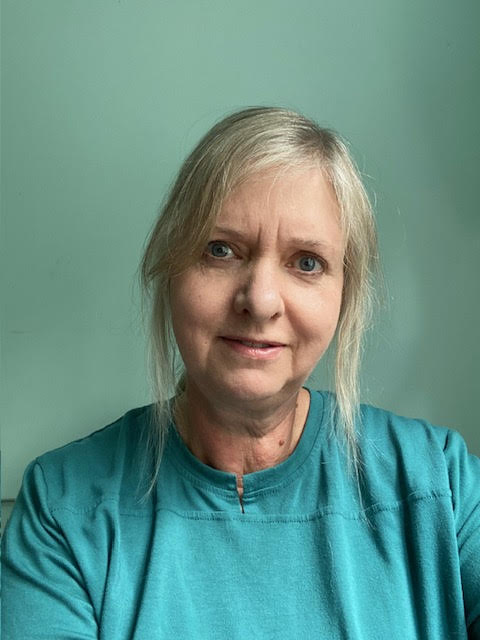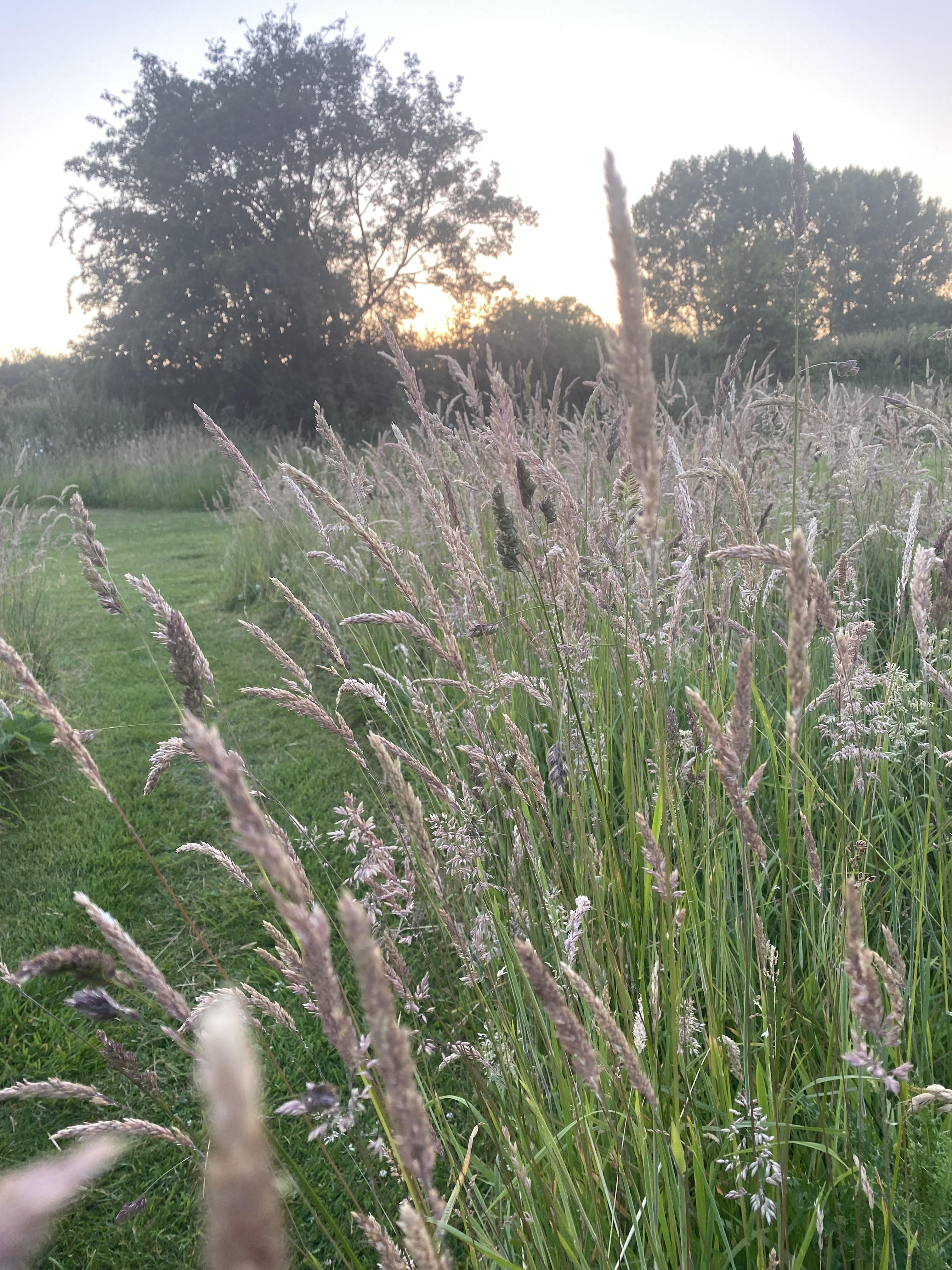About me

Hi and welcome! I'm a UK-based semi-retired Occupational Therapist (OT), Dr Jo Ross.
I have been an OT for more than 35 years (and counting) and it is an essential part of my being! I have previously worked in the fields of Mental Health and Vocational Rehabilitation, as well as University teaching and Senior NHS Leadership and Management. Over the last 13 years I have run my own independent practice working with adults, teens, children and families with neuro-developmental differences. Often my clients experienced mental health and well-being difficulties as well.
As an OT, my primary expertise lies in improving skills for function and participation in everyday life. I have a specific interest in sensory and emotional self-regulation and in improving delayed skills across the developmental lifespan. The workings of the brain, and its' adaptability, are a constant source of awe!
Professional qualifications:
BSc (Hons) in Occupational Therapy (1987)
MSc in Occupational Therapy (1997)
PhD in Allied Health Professions' Studies (2008)
I am registered with the Health and Care Professions' Council (HCPC).
My lifelong love of learning (library geek!) has led me to undertake extensive post-graduate continuing professional training and development in areas relevant to my own therapy practice.
I am a published author and have previously written about work and rehabilitation for OTs, set in a UK context : Occupational Therapy and Vocational Rehabilitation (Wiley 2008) .
'I'm a great nature and outdoors enthusiast. I am using my own images throughout this website. I hope you will share my pleasure in some of the scenes and settings I have captured over the years'.

Outside of work, I met my husband whilst studying at Uni and have been happily married since just after qualifying as an OT. After travelling around some parts of our breathtakingly beautiful world, we raised three great children who have (mostly) flown the nest.
I live in a scenic part of the Kent countryside where I enjoy spending time outdoors in nature, tending to my garden, growing fruit and vegetables, and looking after my various pets. I still like to travel when I get the chance!
I have lived experience of the highs and lows of being a neuro-different family. I am a strong believer in the power of knowledge and the importance of self-care in well-being. As someone with health challenges of my own, I firmly believe that knowing what helps us 'stay well' is important for each of us. Making sure those positive activities are an integral part of our everyday life even more so!

What's this site about?
I know that parents want to help their child/ren to reach their full potential to live a happy, satisfying and fulfilled life. I also know that sometimes this can be easier said than done. For parents of a neuro-different child there are sizeable challenges along the way. Over-medicalisation and the latest novelty 'quick fix solutions' (often expensive) can be a minefield. Accessing therapy and the right kind of alternatives is harder than it should be.
As a therapist and a parent, I am resolutely focused on (obsessed with ?!) the ways we can help our children to live their best life. To rise to the challenges which will inevitably come their way. To optimise their chances of being successful (whatever that means to them). To put well-being (their own and others) at the forefront of our thinking. And, most importantly, to equip them with the courage and skills they need to live a satisfying and full life. As parent/s, you have a critical role in this achieving this ambition of mine.
However, this site is not at all about turning parents into therapists. If you have a fantastic professional team around your child, who work collaboratively and respectfully with you, then I'm thrilled for you. But I know that far too many parents have little or no real support or access to practical information and resources that can make a difference.
So this site aims to inspire parents to learn new ways of working in harmony with their child's 'neuro-different' brain. Because, frankly, their brain, in fact all brains, are unique, powerful and adaptable. All brains can learn to do things differently and develop new skills. All brains can build on strengths and minimise everyday life challenges. Just sometimes the way to do this needs to be individualised for success. And sometimes a task just needs to be broken down more, or done at a slower pace. And that's okay.
Having the confidence and know-how about 'what works' for your child, is so empowering. There can be nothing more fulfilling than seeing your child succeed at a skill they previously couldn't do, avoided, or really struggled with.

Why have you started this site?
As I'm now in the twilight years of my professional career, I'm keen to be sharing my therapeutic knowledge, interests, and relevant life experiences with you.
This is a new venture for me!! My vision is to offer a fresh perspective on how to understand and help struggling children (and their families) by 'doing it differently'. Together with a range of practical and accessible strategies, which I sincerely hope will support your child's growth and maturation.
Over the years, I have supported hundreds of parents, and worked collaboratively with them and their children, to help build the skills which are essential for children to thrive in everyday life. Some of these therapeutic relationships have 'stood the test of time' and worked successfully over extended periods of time.
But I am now semi-retired and have closed my practice. However, I still feel I have some knowledge to share (not ready to hang up my gloves quite yet!) and so my challenge to myself is to try and help a few people, even perhaps with just one new idea or perspective, via this site. Definitely a hobby, not a business!!
I also know that many parents are feeling under a lot of pressure. A very recent survey highlights how NHS waiting times for children and young people have increased significantly. To get an initial assessment for Autism and / or ADHD, and to access follow up treatment, can be incredibly hard. In some parts of the UK there has been a 300% increase in waiting lists and average waiting times have risen to three years¹.
For children stuck on a seemingly endless waiting list, the lack of a diagnosis often means the support needed at school is absent. Even with a diagnosis, accessing therapy which can help is all too often a problem. Private assessments and therapy are costly and out of the reach of many.
This can leave far too many parents struggling to access to the help and support they need.
Local voluntary sector organisations and parent support networks are often a vital lifeline for many, and I would encourage you to make contact with them if you are fortunate enough to have one in your area.
Through this website, I am hoping that I can 'make a small difference'. A small caveat - writing takes time! And so this site is very much still in its' infancy. I do hope you find some helpful insights, and please do visit again as I am regularly adding new content.
Why is the site called 'ASDetal' ?
Nowadays, many children are diagnosed with more than one neurodevelopmental condition (well-over half as a conservative estimate). This can make it harder for parents to understand the difficulties their child may present with. There are reams of books, and endless sources of information and resources, but they tend to focus on the main features of single conditions. So, 'social skills for ASD' or 'improving attention in ADHD' or ' better reading with Dyslexia', and so on. But that isn't most parent's (or the child's) reality. I have often had parents ask me, 'So is it their ASD / ASHD/ Dyspraxia etc. (or other condition) that's causing them to have a problem with this?'
My answer would be that 'it's their 'neuro-different' brain', rather than a consequence of one particular diagnosis. Understanding this difference is crucial to being able to help. Remembering that no two brains are the same. Which makes it more complicated and complex to know how help, sometimes.
And so this site is called ASD 'et al' (and others) as the information shared may be relevant to your child with 'neuro-difference', regardless of their diagnostic status.
Subscribe to my YouTube Channel
A brief note about language........
Words are so powerful. In the absence of international consensus, I use a mixture of person-first and identity-first language when referring to Autistic Spectrum Disorder - ie. child with autism and autistic child (or adult as the case may be). I do the same with Dyslexia and Dyspraxia. There is no identity-first equivalent for ADHD.
I also use the term 'neurodiversity' when talking about neuro-developmental conditions at the general population level ie when referring to groups of people. My personal preference is not to use this at an individual level eg. 'he is neuro-diverse' or 'neuro-divergent'. I think 'neuro-different' is a more neutral term which better reflects an array of strengths and challenges. Not all difference is a problem!! You will, of course, have your own views and preferences on this subject and I fully respect your right to do so.
Reference : 1. NHS Providers (2024) Forgotten Generation : Shaping better services for Children and Young People. The State of Children and Young People’s Services. https://nhsproviders.org/forgotten-generation-shaping-better-services-for-children-and-young-people/the-state-of-children-and-young-people-s-services accessed 15/07/2024)